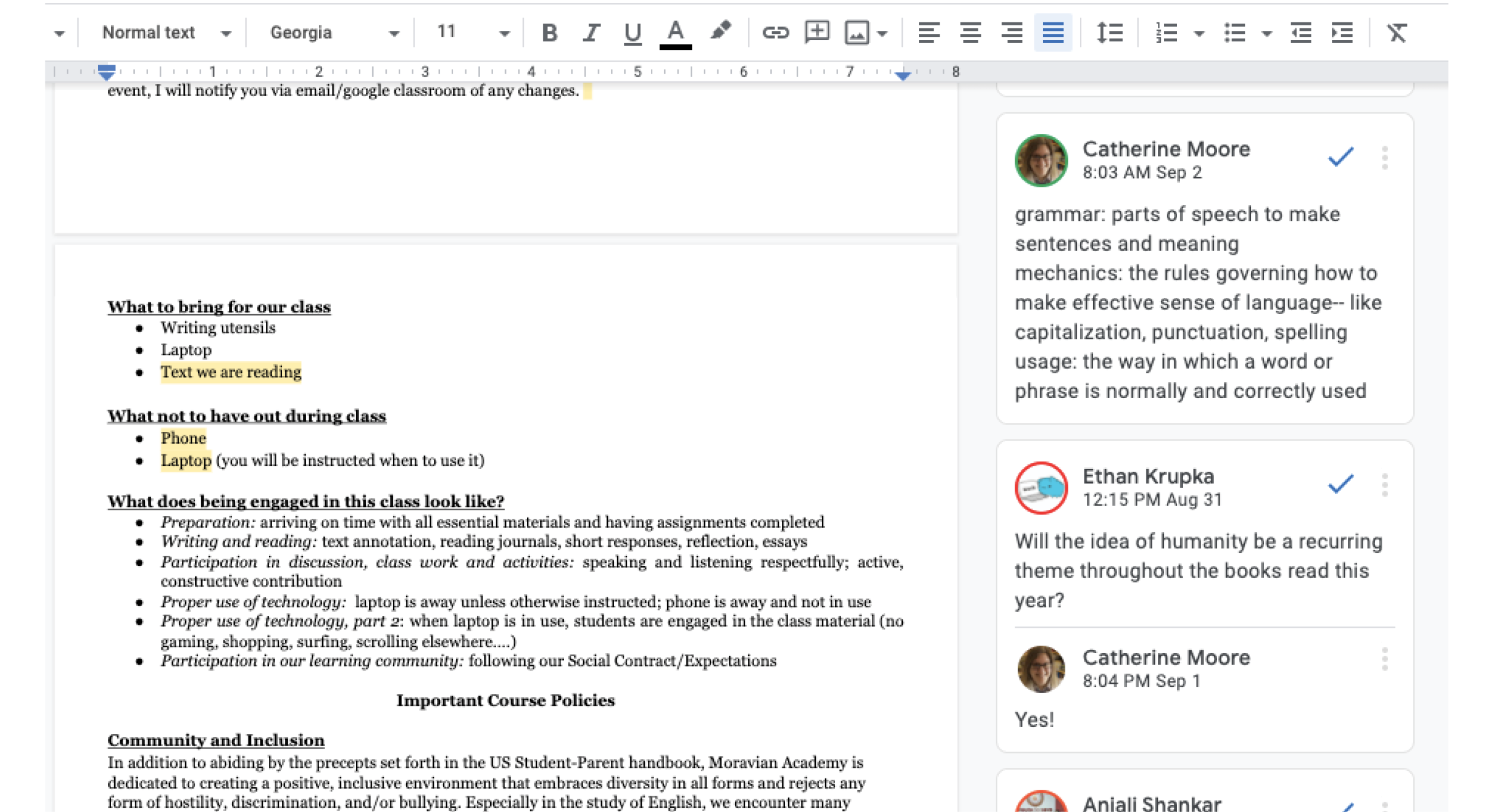Annotating the Syllabus
A few years ago, I stumbled across Remi Kalir’s work at the University of Colorado Denver School of Education and Human Development where he is the Assistant Professor of Learning Design and Technology.
In his Marginal Syllabus project, he investigates the collaborative reading of texts and the production of social annotation, especially of important documents like course syllabi. This is my third year of making my English class ‘policy’ a document that invites students to annotate their questions, thoughts, and concerns. An annotated syllabus is a living document that can adapt to student needs in our rapidly changing world. In “Annotate Your Syllabus 3.0”, Kalir says we should annotate the syllabus:
Because annotating a syllabus conveys a message–from day one–that course documents are not static artifacts, that something authored by an instructor is not unwelcoming of feedback, and that student voice is both appreciated and necessary for a shared endeavor.
Because courses that begin in-person or on campus will likely move back online, and these changes should be documented and discussed.
Because the likelihood of disruptions to the academic calendar will impact assignment due dates, planned activities, and course policies, and those changes should also be documented and discussed.
Because student questions will emerge and change throughout the semester, and those queries should be documented, and responded to, and reexamined in a forum that is easily referenced and revisited.
Annotating the syllabus has been a very successful and enlightening activity -- both in the physical world (I used to hang up large sheets of paper of the syllabus and have the students, in a museum walk around the classroom, append their three annotations with post-its to the pages) and in the digital one (now a google doc is set up where students are editors and leave comments/questions on the syllabus). Annotation in this way has been profitable -- I have noticed what kinds of things concern students and have understood more clearly what support/clarification they need from me.


 myMA
myMA




.png)






